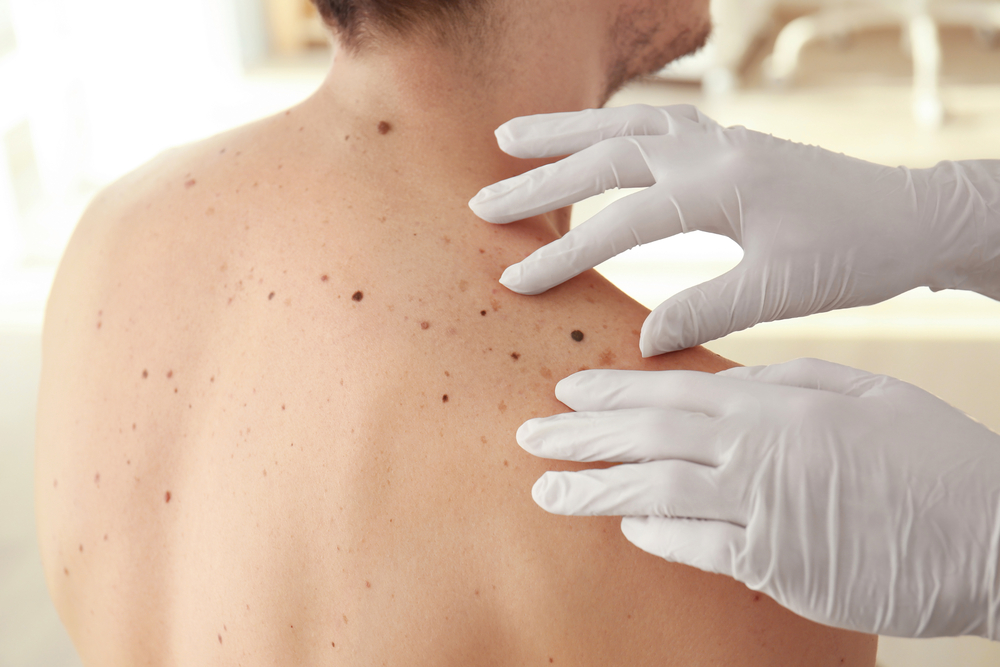Stop hair thinning with the help of a specialist in hair loss treatments.
Stop hair thinning with the help of a specialist in hair loss treatments.
Blog Article
Navigating Skin Cancer Cells Therapy: The Important Role of Mohs in Modern Dermatology Practices
Skin cancer cells, a difficult medical diagnosis, frequently leaves people facing many therapy alternatives. Amongst these, Mohs surgery stands as a beacon in modern-day dermatology, renowned for its thorough approach to cancer cells elimination and conservation of bordering healthy cells. This ingenious technique promises not only premium cosmetic end results yet likewise uses prompt outcomes, easing client stress and anxiety. As we explore the intricacies of this procedure, one will certainly appreciate its essential role in skin cancer cells treatment.
Comprehending Skin Cancer Cells: Types and Risks
Skin cancer, a possibly lethal malady, is much more widespread than many individuals recognize. This illness, triggered by the uncontrolled development of uncommon skin cells, mainly results from DNA damages because of exposure to the sunlight and ultraviolet (UV) light. There are 3 primary kinds of skin cancer cells: Basal cell cancer, Squamous cell cancer, and Melanoma. While the former 2 are less deadly and make up most of identified situations, cancer malignancy is one of the most unsafe. It represents only about 1% of skin cancer cells cases but triggers the substantial bulk of skin cancer cells fatalities - dermatologist. Threat variables include reasonable skin, history of sunburn, excessive sunlight direct exposure, living at high elevations or shut to the equator, having several moles, a family members history of skin cancer, and deteriorated body immune system.
What Is Mohs Surgical treatment and Just How It's Changing Skin Cancer Cells Therapy
Despite the many therapies presently available for skin cancer, Mohs surgical procedure stands out as a groundbreaking and highly effective service. Named after Frederic E. Mohs, the doctor that created the treatment, Mohs surgery is a precise medical method made use of to treat skin cancer. Throughout the treatment, slim layers of cancer-containing skin are gradually removed and examined until only cancer-free cells stays. This technique allows the cosmetic surgeon to verify that all cancer cells have actually been gotten rid of at the time of surgery. This degree of precision, integrated with the capacity to save as much healthy tissue as feasible, is transforming skin cancer treatment. As a result, Mohs surgical procedure has actually become a keystone of modern-day dermatology practices.
The Benefits of Mohs Surgical Treatment Over Conventional Skin Cancer Cells Therapies
Structure on the cutting-edge nature of Mohs surgical procedure, it's crucial to consider its countless benefits over typical skin cancer cells treatments. Unlike typical treatments, Mohs provides a greater remedy price, usually getting to 99% for first-time treatments and 94% for frequent cancers cells. This accuracy results from its unique method of gradually getting rid of and checking out cells layers till only cancer-free great post to read cells continue to be (chemical peel). Furthermore, it reduces damage to healthy and balanced skin, bring about much less scarring and enhanced cosmetic results. Mohs also provides prompt results, getting rid of the anxiety-ridden delay usual with other techniques. It's cost-efficient, as the surgery and tiny assessment take place concurrently, removing the demand for added research laboratory solutions. Thus, Mohs stands for a substantial innovation in skin-related methods.
The Procedure of Mohs Surgical Procedure: What to Expect During the Refine

Prospective Negative Effects and Post-Operative Care of Mohs Surgery
Undertaking Mohs surgical procedure, like any type of various other surgical her response treatment, entails potential side results that people ought to be conscious of. Common side effects consist of pain, wounding, and swelling at the surgery read what he said site. In some situations, extra therapies may be needed to guarantee full elimination of the cancerous cells.
Final thought

Report this page